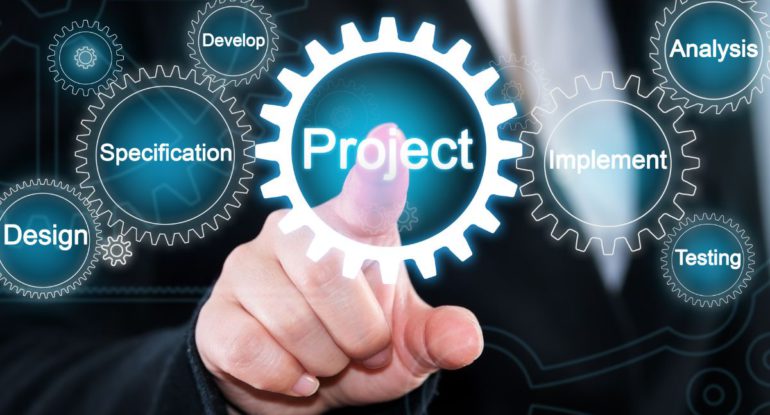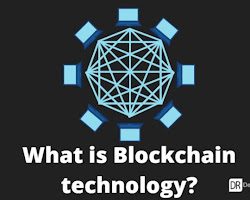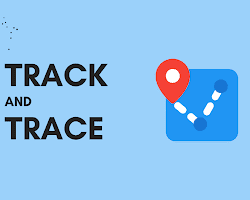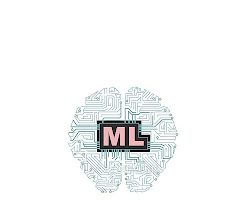Top 10 Blockchain Projects Promoting Sustainable Development Goals

Blockchain projects are a decentralized and distributed digital ledger technology that enables the secure and transparent recording of transactions across multiple participants or nodes in a network. It is often referred to as a “chain of blocks” because it consists of a series of data blocks that are linked together in a chronological order.
The fundamental concept behind blockchain is to create a tamper-resistant and immutable record of transactions. Instead of relying on a central authority or intermediary, such as a bank or government, to validate and maintain the ledger, blockchain relies on a network of participants who collectively validate and agree upon the transactions.
Each block in a blockchain contains a batch of transactions, and it also includes a unique identifier called a cryptographic hash, which is generated based on the data within the block. The hash serves as a digital fingerprint for that specific block and is used to link it to the previous block in the chain. This linking mechanism ensures the integrity and immutability of the blockchain because any modification to a block would require recalculating the hash of that block and all subsequent blocks, making it computationally infeasible to tamper with the data.
To validate and add new transactions to the blockchain, a consensus mechanism is employed. Different blockchain networks use various consensus algorithms, such as Proof of Work (PoW), Proof of Stake (PoS), or Practical Byzantine Fault Tolerance (PBFT), to achieve agreement among the network participants. These consensus algorithms ensure that the majority of participants reach a consensus on the validity and order of transactions before they are added to the blockchain.
One of the key features of blockchain is its transparency. Once a transaction is recorded on the blockchain, it is visible to all participants in the network. This transparency enhances trust among the participants and enables them to independently verify the accuracy of transactions. However, the transparency does not compromise the privacy of individual participants since the transactions are typically pseudonymous, meaning that they are associated with cryptographic identifiers rather than real-world identities.
Blockchain technology is most commonly associated with cryptocurrencies, such as Bitcoin and Ethereum, which were among the first use cases for blockchain. However, its applications go far beyond digital currencies. Blockchain has the potential to revolutionize various industries, including finance, supply chain management, healthcare, real estate, and more.
In finance, blockchain can streamline cross-border payments, reduce transaction costs, and enable faster settlement times. It can also facilitate the issuance and trading of digital assets, such as stocks and bonds, without the need for intermediaries.
In supply chain management, blockchain can enhance transparency and traceability by providing a permanent record of every step in the supply chain. This can help prevent fraud, counterfeiting, and improve efficiency in logistics.
In healthcare, blockchain can securely store and share patient data, ensuring interoperability between different healthcare providers while maintaining patient privacy.
Blockchain technology is still evolving, and there are ongoing research and development efforts to address its scalability, privacy, and energy consumption challenges. Various blockchain platforms and frameworks have emerged, each with its own features and use cases. Examples include Ethereum, Hyperledger Fabric, Corda, and many others.
In summary, blockchain is a decentralized and transparent technology that enables secure and tamper-resistant recording of transactions. Its potential applications extend beyond cryptocurrencies, and it has the ability to transform industries by improving efficiency, security, and trust in various business processes.
Also read: The Top 10 Blockchain Projects To Watch In 2023
How Blockchain can impact Sustainable Development Goals
Blockchain technology has the potential to significantly impact the achievement of the United Nations’ Sustainable Development Goals (SDGs) by providing innovative solutions to various challenges. Here are some ways in which blockchain can contribute to the SDGs:
1. Poverty eradication (SDG 1): Blockchain can facilitate financial inclusion by providing access to financial services for the unbanked population. Through decentralized digital currencies and peer-to-peer transactions, individuals can securely store and transfer value without the need for traditional banking infrastructure.
2. Zero hunger (SDG 2): Blockchain can enhance transparency and traceability in the food supply chain, ensuring that the food reaches its intended destinations and reducing food waste. By tracking the origin, quality, and safety of food products, blockchain can improve efficiency and accountability in agricultural processes.
3. Good health and well-being (SDG 3): Blockchain can enhance the interoperability and security of health records, ensuring that patient data is accurately shared among healthcare providers while maintaining privacy. This can lead to improved healthcare delivery, better disease surveillance, and more effective response to public health emergencies.
4. Quality education (SDG 4): Blockchain can provide a secure and verifiable system for issuing and verifying educational certificates and qualifications. This can help combat certificate fraud and enhance the trust and recognition of educational credentials, especially in regions with limited infrastructure for record-keeping.
5. Gender equality (SDG 5): Blockchain can support initiatives aimed at promoting gender equality by providing secure and transparent platforms for tracking and validating the ownership and transfer of assets. This can empower women, especially in societies where property rights are traditionally biased against them.
6. Clean energy (SDG 7): Blockchain can enable peer-to-peer energy trading and decentralized energy systems. Through blockchain-based smart contracts, individuals can trade excess renewable energy with each other, promoting the use of clean energy sources and reducing reliance on centralized power grids.
7. Sustainable cities and communities (SDG 11): Blockchain can improve urban planning, governance, and infrastructure management. By leveraging blockchain’s transparency and decentralized nature, cities can create secure platforms for citizen participation, efficient resource allocation, and effective management of public services.
8. Responsible consumption and production (SDG 12): Blockchain can enable transparent supply chains, allowing consumers to trace the origin, authenticity, and environmental impact of products. This can encourage sustainable production practices, reduce waste, and promote ethical consumption.
9. Climate action (SDG 13): Blockchain can facilitate the tracking and verification of greenhouse gas emissions and support the implementation of carbon credit systems. By providing a transparent and immutable ledger of emission data, blockchain can enhance accountability and encourage climate-friendly actions.
10. Peace, justice, and strong institutions (SDG 16): Blockchain can enhance transparency and trust in governance systems, public procurement, and voting processes. By providing an auditable and tamper-proof record of transactions, blockchain can reduce corruption, ensure accountability, and strengthen democratic institutions.
It is important to note that while blockchain technology holds great promise for advancing the SDGs, its implementation and adoption face various challenges. These include scalability issues, energy consumption concerns, regulatory frameworks, and the need for collaboration among stakeholders. Nonetheless, with continued research, innovation, and collaboration, blockchain has the potential to contribute significantly to the achievement of the Sustainable Development Goals.
Also read: Top 7 Intriguing Metaverse Blockchain Projects For Investors
Top 10 Blockchain Projects Promoting Sustainable Development Goals
Blockchain technology has the potential to revolutionize many industries, including sustainable development. By providing a secure and transparent way to track and share data, blockchain can help to address some of the world’s most pressing environmental and social challenges.
Here are 10 blockchain projects that are making a difference in the fight for sustainable development:
- Provenance: Provenance is a blockchain-based platform that tracks the provenance of goods, ensuring that they are produced and traded in a sustainable way. The platform has been used to track coffee, wine, and other products.

- We.Care: We.Care is a blockchain-based platform that connects donors with projects that are working to improve the lives of people in developing countries. The platform allows donors to track how their money is being used and to ensure that it is being used effectively.
- Grid+: Grid+ is a blockchain-based energy company that is using blockchain to decentralize the energy grid and make it more efficient. The company’s platform allows homeowners to sell their excess energy back to the grid, and it also provides a way for people to track their energy usage.

- Everledger: Everledger is a blockchain-based platform that tracks diamonds and other precious stones, ensuring that they are not conflict diamonds. The platform has been used to track diamonds from the mine to the retail store.
- Blockchain for Social Good: Blockchain for Social Good is a non-profit organization that is using blockchain to address social and environmental challenges. The organization has developed a number of blockchain-based projects, including a platform for tracking the delivery of humanitarian aid and a platform for verifying the authenticity of food products.

- Waterchain: Waterchain is a blockchain-based platform that tracks the water supply, ensuring that it is safe and secure. The platform has been used to track water in a number of different countries, including Kenya and India.
- SolarCoin: SolarCoin is a blockchain-based incentive program that rewards people for generating solar power. The program has been used to incentivize solar power generation in a number of different countries, including the United States, Canada, and Australia.

- Track and Trace: Track and Trace is a blockchain-based platform that tracks the supply chain of food products, ensuring that they are produced and traded in a sustainable way. The platform has been used to track food products in a number of different countries, including the United States, Canada, and the European Union.
- Terramera: Terramera is a blockchain-based company that is using blockchain to track the use of pesticides in agriculture. The platform allows farmers to track how much pesticide they are using and to ensure that they are using it safely and effectively.

These are just a few of the many blockchain projects that are working to promote sustainable development. As the technology continues to mature, we can expect to see even more innovative and impactful applications of blockchain for sustainable development.
We’re thrilled to announce that IOHK is collaborating with the United Nations for its 75th year anniversary! Project Catalyst will be used to vote on proposals which meet the UN’s Sustainable Development Goals
Join the blockchain for social good challenge https://t.co/HsvIntRLIf
— Input Output (@InputOutputHK) September 30, 2020
Benifits of Blockchain projects for Promoting Sustainable Development Goals
Blockchain projects offer several benefits for promoting sustainable development goals (SDGs). Here are some key advantages:
1. Transparency and Accountability: Blockchain provides a transparent and immutable record of transactions and activities. This transparency promotes accountability and reduces corruption by ensuring that information is accessible to all participants in the network. For instance, in supply chain management, blockchain can trace the origin of products, enabling consumers to make informed choices and hold companies accountable for their sustainability claims.
2. Trust and Security: Blockchain technology enhances trust by eliminating the need for intermediaries and central authorities. Transactions recorded on the blockchain are cryptographically secured, making them tamper-proof and resistant to fraud. This trust and security aspect is crucial for SDG-related projects, as it encourages collaboration and cooperation among stakeholders in sectors like finance, healthcare, and energy.
3. Efficiency and Cost Reduction: Blockchain can streamline processes, reduce bureaucracy, and eliminate manual paperwork. By automating and digitizing processes, blockchain projects can increase efficiency, reduce administrative costs, and eliminate redundant intermediaries. This efficiency is particularly beneficial in areas like financial inclusion, where blockchain enables peer-to-peer transactions without the need for traditional banking infrastructure.
4. Financial Inclusion and Empowerment: Blockchain-based digital currencies and decentralized financial systems can provide access to financial services for the unbanked and underbanked populations. This inclusion can empower individuals economically and socially, contributing to poverty reduction and sustainable economic development.
5. Traceability and Supply Chain Management: Blockchain enables end-to-end traceability in supply chains, ensuring the provenance, authenticity, and sustainability of products. This transparency helps combat issues like illegal logging, forced labor, counterfeiting, and unsustainable practices. By verifying the origin and environmental impact of products, blockchain projects promote responsible consumption and production.
6. Data Privacy and Security: Blockchain allows individuals to have control over their personal data while ensuring its security. Through blockchain-based identity systems, users can selectively share their information, reducing the risk of data breaches and identity theft. This privacy-centric approach is valuable in areas like healthcare, where sensitive patient data can be securely shared among providers while maintaining confidentiality.
7. Collaboration and Decentralization: Blockchain promotes collaboration and decentralization by enabling peer-to-peer interactions and consensus-based decision-making. This participatory approach can empower communities, facilitate collective action, and enhance governance systems. For example, blockchain-based voting platforms can promote transparency and inclusivity in electoral processes.
8. Innovation and Scalability: Blockchain technology encourages innovation by providing a flexible and programmable platform for developing decentralized applications (DApps). This flexibility allows for the creation of innovative solutions that address specific sustainability challenges. Furthermore, blockchain’s scalability potential enables the expansion of these solutions to reach a larger user base.
9. Resilience and Disaster Management: Blockchain’s decentralized nature and distributed architecture make it resilient to single points of failure. In disaster-prone areas, blockchain projects can ensure the integrity and availability of critical data, facilitate emergency response coordination, and enable efficient allocation of resources.
10. Global Collaboration and Impact Tracking: Blockchain networks facilitate global collaboration by connecting participants across geographical boundaries. Additionally, blockchain’s transparent and auditable nature enables the tracking of impact and progress towards SDGs. This tracking can help stakeholders measure the effectiveness of interventions, identify areas for improvement, and make data-driven decisions.
While the benefits of blockchain for promoting SDGs are substantial, it is important to address challenges like scalability, energy consumption, regulatory frameworks, and interoperability. Collaborative efforts from governments, organizations, and communities are necessary to harness the full potential of blockchain technology and maximize its impact on sustainable development.
Also read: How Can You invest In blockchain And What Are The Best Blockchain Projects
Future of Blockchain Projects and Sustainable Development Goals
The future of blockchain projects in relation to sustainable development goals (SDGs) is promising, as the technology continues to evolve and mature. Here are some key aspects that illustrate the potential future impact of blockchain on promoting SDGs:
1. Increased Adoption: Blockchain technology is expected to witness increased adoption across various sectors in the coming years. As organizations recognize the potential benefits of blockchain for promoting sustainability, more projects focused on SDGs are likely to emerge. This increased adoption will lead to a broader and more diverse range of blockchain applications that directly contribute to achieving the SDGs.
2. Interoperability and Integration: Blockchain platforms are evolving to address interoperability challenges, allowing different blockchain networks to seamlessly communicate and share data. This interoperability will foster integration between different blockchain projects, enabling more comprehensive solutions for sustainable development. For example, blockchain projects focused on renewable energy and supply chain management could integrate their systems to ensure sustainable energy production and distribution.
3. Integration with Emerging Technologies: Blockchain is likely to integrate with other emerging technologies such as artificial intelligence (AI), Internet of Things (IoT), and big data analytics. This convergence will enable even more powerful and impactful solutions for promoting sustainable development. For instance, integrating blockchain with IoT devices can improve the monitoring and management of resources, leading to more efficient and sustainable use of energy, water, and other essential resources.
4. Enhanced Scalability and Efficiency: Blockchain networks are actively working on scalability solutions to handle a larger volume of transactions and accommodate a growing user base. Scalability improvements will enable blockchain projects to handle the demands of sustainable development initiatives on a global scale. Furthermore, advancements in blockchain consensus mechanisms and network protocols will enhance the efficiency and speed of transactions, making blockchain more suitable for real-world applications.
5. Regulatory Frameworks and Standards: Governments and regulatory bodies are recognizing the potential of blockchain technology and working on establishing regulatory frameworks and standards. Clear guidelines and regulations will provide a conducive environment for blockchain projects to thrive, fostering innovation while ensuring compliance with legal and ethical considerations. These frameworks will facilitate the integration of blockchain into existing systems and encourage collaboration between public and private sectors to achieve SDGs.
6. Tokenization and Impact Investing: Tokenization, the representation of real-world assets as digital tokens on the blockchain, has the potential to revolutionize impact investing. Blockchain projects can tokenize sustainable assets such as renewable energy projects, carbon credits, or social impact initiatives, enabling fractional ownership, liquidity, and transparency. This opens up new avenues for impact investors to contribute to SDGs and participate in sustainable development initiatives.
7. Decentralized Governance and Collaboration: Blockchain’s decentralized nature encourages collaborative decision-making and community governance. Future blockchain projects focused on SDGs may adopt decentralized governance models that allow stakeholders to participate in decision-making processes. This inclusive approach can empower communities and create a sense of ownership, leading to more sustainable outcomes and effective implementation of SDG-related initiatives.
8. Education and Awareness: As blockchain technology continues to advance, education and awareness initiatives will play a crucial role in driving its adoption for SDGs. Organizations, governments, and educational institutions will likely invest in educational programs and initiatives to build awareness, foster understanding, and develop the necessary skill sets for blockchain development and implementation in sustainable development projects.
9. Impact Measurement and Reporting: Blockchain’s transparent and immutable nature enables accurate and reliable tracking of impact and progress towards SDGs. Future blockchain projects may incorporate smart contracts and decentralized applications for measuring, reporting, and verifying impact in real-time. This transparent reporting will help stakeholders gain insights into the effectiveness of sustainability initiatives, enable data-driven decision-making, and enhance accountability.
10. Global Collaboration: Blockchain networks facilitate global collaboration by connecting participants across borders, cultures, and industries. Future blockchain projects will likely leverage this global connectivity to foster collaboration among stakeholders working towards SDGs. Cross-border initiatives can be established, enabling the sharing of best practices, knowledge, and resources to address complex sustainability challenges on a global scale.
In conclusion, the future of blockchain projects in relation to sustainable development goals holds immense potential. Increased adoption, interoperability, integration with emerging technologies, scalability improvements, regulatory frameworks, and decentralized governance will contribute to the development of impactful blockchain solutions for promoting sustainable development. As the technology matures and evolves, blockchain has the capacity to revolutionize various sectors, accelerate progress towards SDGs, and create a more sustainable and equitable future.




























































